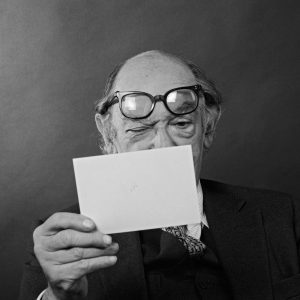Jan-Werner Müller in the New York Review of Books:

Liberalism is in crisis, we’re told, assailed on left and right by rising populists and authoritarians. The center cannot hold, they say. But if liberal democracy itself is under threat of collapse because of this weakened center, why are the great defenders of the “open society” such as Isaiah Berlin, Arthur Schlesinger Jr., Karl Popper, and Raymond Aron so little invoked? One would think that liberals today would be pressing back into service these robust thinkers of cold-war liberalism. But while not forgotten, their names are barely cited in contemporary political debates. One curious exception—that almost proves the rule, given its eccentric grounds—was when, last year, an Irish finance minister lauded Berlin for helping him deal with “the demands of corporation tax policy.” That is hardly using Berlin as a buttress against populism.
There remains much to be recovered from cold war liberalism for our historical moment. These thinkers had already learned the hard way that progress in the direction of a more liberal world is not inevitable. In a self-critical vein, they took seriously some of the charges that had been leveled against capitalist democracies in the 1920s and 1930s. But what Schlesinger outlined in an influential 1949 book called The Vital Center was not a matter of mere pragmatism, let alone triangulation between extreme left and right.
More here.
